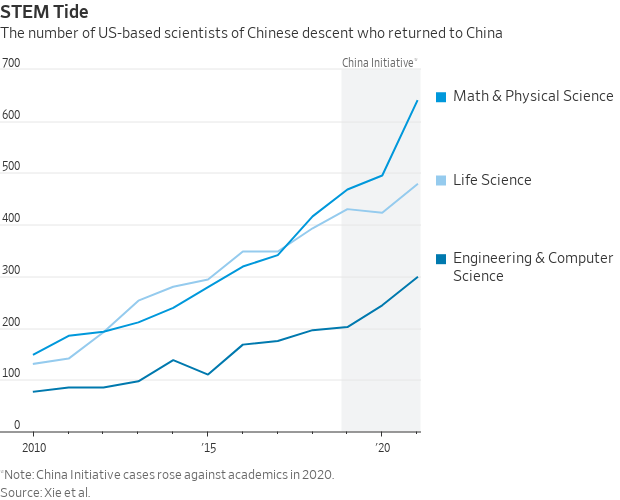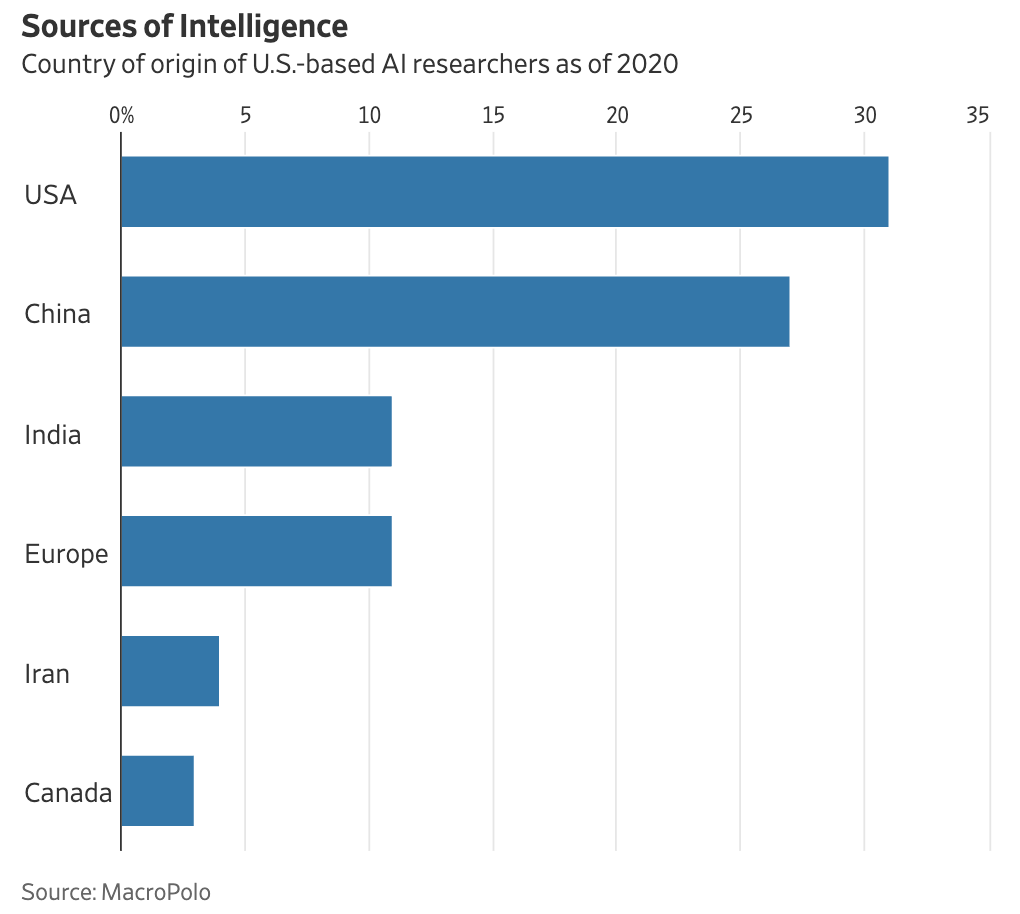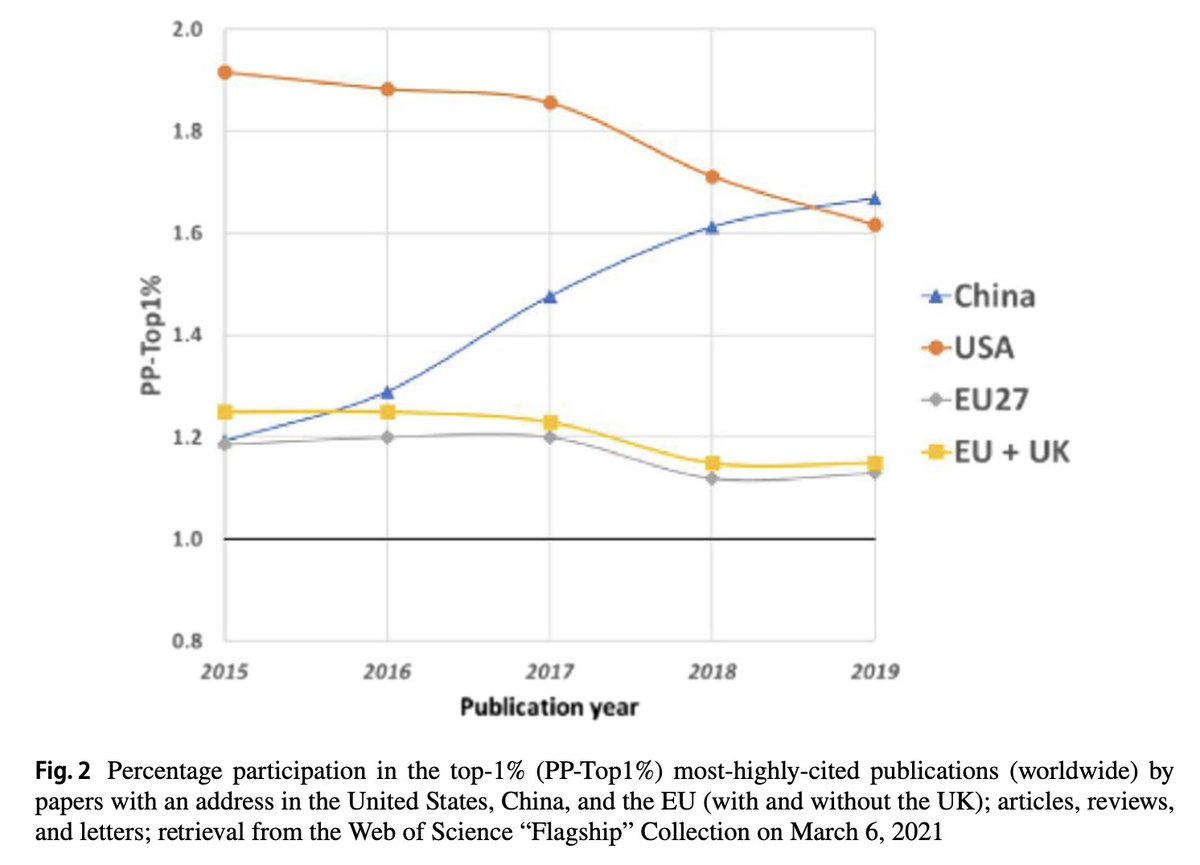
A Trump-era program meant to crackdown on Chinese economic espionage morphed into targeting academics of Chinese descent. Now as the US seeks to defend its global scientific leadership, a growing number of those academics are leaving the US. wsj.com/articles/u-s-c…
New data from researchers at Princeton, Harvard & MIT paints an astounding picture: 1,400+ U.S.-trained Chinese scientists switched from U.S. to Chinese affiliations in 2021, a 22% jump from the previous year. This coincides with when the DOJ began targeting more academics. 

Many were tenured professors and giants in their field, including a winner of the Fields Medal, the highest honor in mathematics.
Many were also in strategically important fields like aerospace & biology.
Many were also in strategically important fields like aerospace & biology.
To understand the impact that this could have on US competitiveness and national security, consider the story of renowned scientist Qian Xuesen who, after being forced out the US during the McCarthy era, went on to help build China’s space and nuclear-weapons program.
As @AlexNowrasteh at the Cato institute put it to us: “How is sending the next generation of Qian Xuesens back to China good for U.S. national defense or U.S. innovation?”
The vast majority of these scientists want to stay and to contribute to the U.S. An @AASForumOrg survey among US-based Chinese scientists found that 89% wanted to contribute to U.S. scientific and technological leadership. But many now feel this increasingly untenable.
.@shashamimi & I spoke to nearly 20 ethnically Chinese scientists who have left or are contemplating leaving. They cited fears of U.S. government surveillance & anti-Asian violence. They spoke about the pull of China's growing scientific prowess & a desire to be close to family.
They were clear-eyed about the academic restrictions they would face in China but felt that for them, the US was becoming no different. “It’s really a dilemma,” One Berkeley PhD student said. “You can’t go to China for many reasons. You can’t stay in the U.S. happily.”
This is particularly concerning given how much scientists & engineers of Chinese descent have contributed to US innovation. Consider AI, a strategically important field. In 2020, 27% of US-based AI researchers were from China, 31% from the US, per @MacroPoloChina. 

.@ericschmidt put this in context for us: The number of US-born AI PhD students hasn't increased since 1990. Thus immigration is crucial for the US's continued AI leadership. Chinese & other foreign-born scientists "are a source of national strength," he said.
Meanwhile, China-based scholars overtook U.S.-based scholars in 2019 in producing the largest share of the top 1% most highly cited scientific papers. link.springer.com/article/10.100… 

• • •
Missing some Tweet in this thread? You can try to
force a refresh





